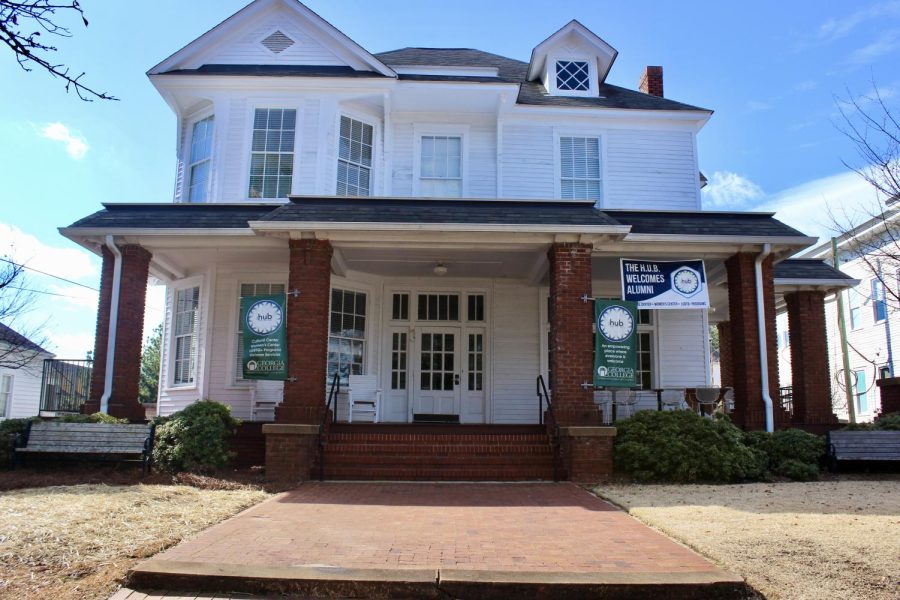Censorship in public universities
The HUB at GC is home to the cultural center, LQBTQ+ center and the Women’s Center.
February 1, 2023
In September 2022, a tenured Valdosta State University biology professor, Dr. Leslie Jones, was told to change how she teaches about topics such as sex and gender or else she will be removed from the course.
There are, most commonly, two sides of the sex and gender argument that are discussed. One argues that sex and gender are categorically the same, while another asserts that the concepts are based on birth assignment and personal identity, respectively.
Jones teaches that sex is biological, and gender is a cultural construct, in her Evolution and the Diversity of Life biology course, which led a parent to complain.
The situation led to individuals around the nation questioning how race and gender are taught in an age of progressivity. GC professors explained their thoughts and emphasized that their opinions do not directly reflect the opinions of the university or the USG (University System of Georgia).
Dr. Sabrina Hom, an associate professor of philosophy at GC and program coordinator of women’s studies, discussed the event and how it affects students and professors in public universities.
“We live in a very politicized world, and the degree to which the facts are getting politicized is certainly difficult,” Hom said.
In addressing the political divide that caused parents to complain, Hom discussed the importance of these topics and how they should be addressed by universities.
“These are precisely the sorts of things that a college really should be sharing, you know: the fact that intersex people exist, that sex is not always a simple binary,” Hom said.
The Foundation for Individual Rights and Expression is fighting to protect Jones under a proposed violation of the First-Amendment right to academic freedom.
Joanna Schwarts, who is a marketing professor at GC, co-lead for the faculty group Diversity Peer Educators and is on the Diversity, Equity and Inclusion Committee of the College of Business and Technology, described her thoughts as well.
“I am absolutely a proponent of academic freedom, but I really think that there is no freedom without respect for other people,” Schwarts said. “I mean, you can not discuss a subject that is controversial without acknowledging that there are people who have beliefs that are different than yours,” Schwartz explained.
Controversy arose around the issue of tenure and the fact that colleges can not censor the lessons of tenured professors.
“We always hope and expect to see the administration speaking up for those basic values — to maintain those kinds of basic standards — and academic freedom is one of them,” Hom said.
“I really do believe that one of the benefits of tenure is to give professors the leeway to research topics that might be considered controversial because, depending on your view, there are things on the right and the left that are controversial,” Schwarts said. “It does not have to be a political issue. You could just call it ‘aspects of health.’”
GC students expressed their thoughts on the situation.
Kara Nitschke, a senior psychology major, explained her opinion on academic freedom, a central element of tenure.
“I understand that it makes people uncomfortable, but if everything makes you comfortable, then how do you learn?” Nitschke said.
Lydia Hayes, a freshman mass communication major, described her belief on the discourse.
“Since it is a public college, you can not really tell those professors what to teach if students do not want to hear what they are teaching,” Hayes explained. “As long as they do not say their opinion on the situation, then I think that is fine.”
There is a continuous discourse on the topic of sex and gender being taught at universities that does not seem to have an end in sight.




